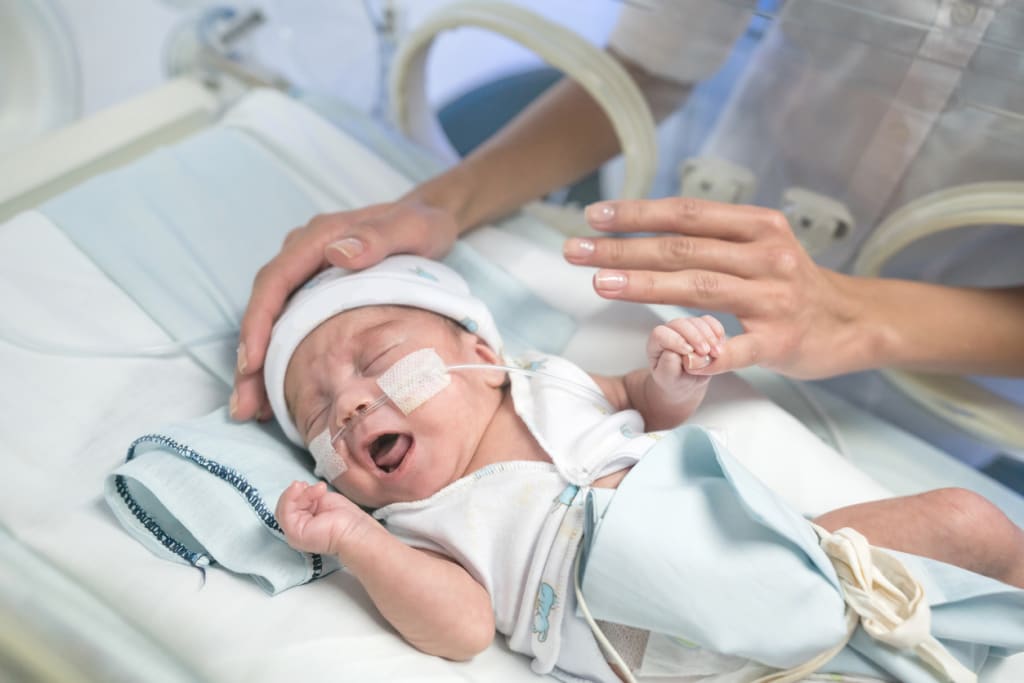Global study provides high-quality data to improve treatment of newborn babies with sepsis
Sepsis is a life-threatening bloodstream infection which affects up to 3 million babies a year globally.

A worldwide observational review, which included in excess of 3,200 infants experiencing sepsis in 19 clinics in 11 nations, has shown that numerous babies are passing on in light of the fact that the anti-microbials used to treat sepsis are losing their viability.
The review, led from 2018 to 2020, found there was high mortality among babies with culture-positive sepsis (very nearly 1 out of 5 across the emergency clinic destinations), and a huge weight of anti-microbial opposition.
The review has given an abundance of excellent information pointed toward working on the treatment of infants with sepsis.
The discoveries have been distributed in PLOS Medication and co-wrote by a worldwide group of north of 80 scientists crossing four mainlands. It was led by the Worldwide Anti-microbial Innovative work Association (GARDP) in a joint effort with St George's, College of London (SGUL); Penta - Kid Wellbeing Exploration; the Clinical Exploration Chamber Clinical Preliminaries Unit at College School London (MRC CTU at UCL), whose examination group drove in breaking down the information; and the College of Antwerp.
The observational review has been instrumental in giving the great information that we really want to plan preliminaries of proper medicines for sepsis in infants. It has been an immense cooperative exertion by specialists and clinicians in Africa, Asia, Latin America and Europe".
Dr Neal Russell, Head Specialist of the Review at St George's, College of London
Manica Balasegaram, Leader Overseer of GARDP, said: "It was vital to embrace this review to get a superior comprehension of the sort of contaminations we're finding in babies in medical clinics, the bugs causing them, the therapies that are being utilized and why we are seeing more passings. The review has given us crucial data which will assist us with bettering plan clinical preliminaries and at last work on the consideration and result of children with neonatal sepsis."
Sepsis is a perilous circulatory system contamination which influences up to 3 million children a year universally. Consistently, 214,000 infants, generally in low-and center pay nations (LMICs), pass on from sepsis that has become impervious to anti-microbials. Infants are especially in danger of extreme disease as a result of their immature safe frameworks.
There was broad variety in mortality between the 19 emergency clinics in the review, going from 1.6% to 27.3%, with particularly higher rates in LMICs. Driving clinicians in emergency clinics in Bangladesh, Brazil, China, Greece, India, Italy, Kenya, South Africa, Thailand, Vietnam and Uganda participated in the review.
Sithembiso Velaphi, Head of Pediatrics at Chris Hani Baragwanath Scholarly Clinic in Johannesburg, South Africa, said:
"The review uncovered the glaring truth of anti-infection safe contaminations, particularly in medical clinics in LMICs, where we are frequently confronted with a deficiency of medical caretakers, beds and space. The gamble of contaminations is extremely high and most diseases are impervious to anti-microbials. In the event that an anti-toxin doesn't work, the child frequently bites the dust. This critically needs to change. We really want anti-microbials that will cover every bacterial contamination."
Drug Revelation digital book Assemblage of the top meetings, articles, and news somewhat recently.
The review features a worryingly wide variety in treatment. In excess of 200 unique anti-infection blends were utilized by medical clinics in the review, with continuous changing of anti-microbials because of high protection from therapies.
Numerous doctors had to utilize anti-microbials, for example, carbapenems because of the serious level of anti-toxin protection from the suggested medicines in their units. These are characterized by the World Wellbeing Association as "Watch" anti-infection agents. They are suggested exclusively for explicit, restricted signs as need might arise to be protected. Be that as it may, these were many times the main anti-infection agents accessible to treat the contamination.
Last-line anti-infection agents were recommended to 15% of children with neonatal sepsis signed up for the review. Klebsiella pneumoniae was the most well-known microbe detached. It is typically connected with clinic procured contaminations.
Utilizing the information gathered, the group created two apparatuses that could be utilized in clinical preliminaries and in any neonatal emergency unit. The NeoSep Seriousness Score, in light of 10 clinical signs and side effects, could be utilized by clinicians to recognize babies who have a high gamble of passing on, and guarantee they stand out enough to be noticed all the more rapidly. The NeoSep Recuperation Score utilizes a significant number of similar clinical signs and side effects and could give clinicians key data on whether to raise treatment.
The concentrate additionally means to illuminate WHO rules on treatment for infants with sepsis.
Wolfgang Stöhr, analyst for the observational review at MRC at UCL, said: Creatures develop, drug opposition changes; to that end clinical rules for neonatal sepsis need consistent variation. Refreshing rules depends on late and great proof, so this observational review is a critical stage towards better treatment."
The consequences of the review have been utilized to plan a urgent vital general wellbeing clinical preliminary to track down better medicines for infant contaminations with regards to expanding protection from existing medicines.
The neonatal sepsis preliminary (NeoSep1) is driven by GARDP along with SGUL and the MRC CTU at UCL and is being led at Chris Hani Baragwanath Scholarly Emergency clinic in Soweto, Johannesburg, Tygerberg Emergency clinic in Cape Town and Kilifi Province Emergency clinic in Kenya. The preliminary will likewise check out at fitting details and measurements for infants. The preliminary will be extended to different nations and locales from 2024, with an objective of selecting up to 3000 infants generally speaking.
Alessandra Nardone, Clinical Undertaking Supervisor at Penta - Youngster Wellbeing Exploration, expressed: "Work in detailing and portion suitability is basic. Kids are not little grown-ups. Drugs should be formed to address their issues in a protected and powerful way."
The new preliminary will profit from indispensable research facility work did during the observational review.
Surbhi Malhotra-Kumar, Top of the Lab of Clinical Microbial science at the College of Antwerp, said: "The Research center of Clinical Microbial science (LMM LAB-Net) worked as the focal lab, supporting nearby lab examination for the observational review. We likewise played out a top to bottom atomic examination on the gathered microorganisms. Together, these outcomes give significant data to the NeoSep1 preliminary."
About the Creator
Enjoyed the story? Support the Creator.
Subscribe for free to receive all their stories in your feed. You could also pledge your support or give them a one-off tip, letting them know you appreciate their work.





Comments
There are no comments for this story
Be the first to respond and start the conversation.